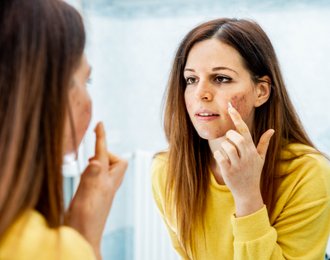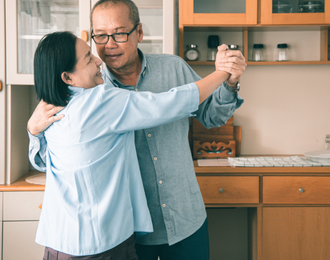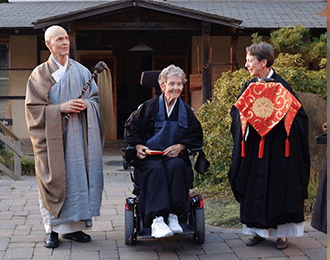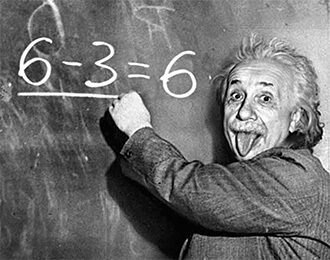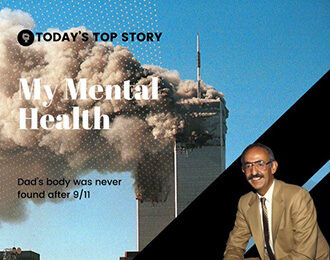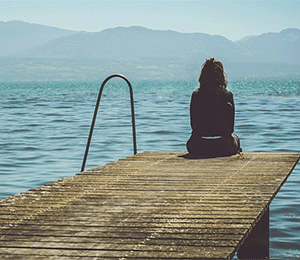Caring for my brother after his brain injury showed me a world of compassion
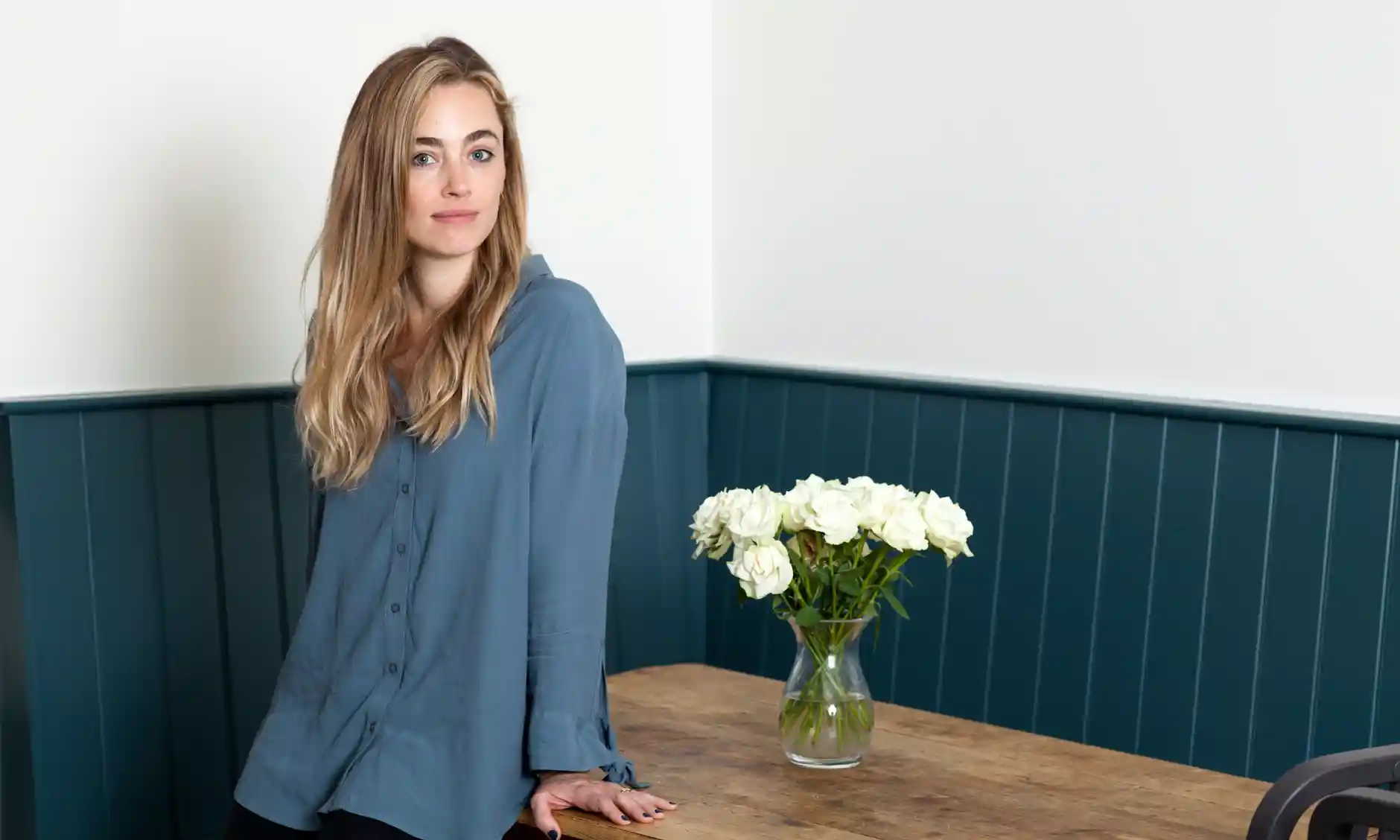
The Guardian Feb 2020
Author: Marina Kemp
Seeing the hidden world of care, after my beloved brother’s devastating accident, taught me about people’s remarkable strength and grace
I often find myself thinking back to a fairly unremarkable afternoon in 2010. I was sitting in the day room of a care home while my older brother Miles slept beside me, in his wheelchair. Steve, one of the other severely brain-injured residents dotted around the room in wheelchairs, was in distress.
His hands were up by his face in tight fists and he was weeping. Nothing anyone did to comfort or soothe him worked; the look on his contorted face was one of pure anguish.
And then, just as Miles was waking up, Steve’s wife Natalia entered the room. Seeing her husband, she dropped her bags and ran to him, holding his face in her hands and covering it in kisses. Normally an outspoken and wonderfully foul-mouthed woman, she spoke now in gentle, incantatory whispers.
I’ve never seen relief like the relief that flooded Steve’s face; it spread over his face and even his limbs, his neck softening back into the headrest, hands uncurling. It was a moment of tenderness and care, but also such profound intimacy that I found myself turning away, as if I were intruding.
I was initiated into the world of care a week before my 20th birthday, when my family was struck by the first of three consecutive blows. My brother – a powerful, handsome, funny and gifted 29-year-old, and one of my closest friends – was left in a coma after a snowboarding accident, and then in a minimally conscious state (MCS) until his death five years later, in 2011.
Nine months after Miles’s accident, my adored stepfather Ron was diagnosed with cancer and, after undergoing surgery and chemotherapy, passed away in 2008. A year after my brother’s death, my father was also diagnosed with cancer – the same variant as my stepfather’s – and underwent the same treatments. He died in 2016.
For the five years between Miles’s accident and his death, my family and I devised a continual roster of visits to his hospitals and then care home. We used a machine to clear his trachea when he choked with a cough, and managed his spasticity and contractures with massage and splints.
We helped to reposition him to prevent pressure sores. We brought him home once a week, learning how to manoeuvre his wheelchair up and down a ramp using a remote control and straps, and how to administer his medication, nutrition and hydration via a PEG tube.
We talked to him, read to him, played music, took him outside in his wheelchair. Day after day and year after year, we tried everything we could to keep his physical pain – but also, crucially, his loneliness and grief – at bay. Much of the time, we couldn’t succeed.
During the years of care there were tender moments to cherish
I am sure that being so involved in Miles’s care – a necessity due not only to the particular complexity of MCS, but to the profound fissures in our brilliant but beleaguered NHS and primary care trusts – helped us to cope with all the loss. Care is work, a repetitive series of duties, and in that sense it sometimes worked as a distraction from our grief. At times, it could even enable us to feel useful – a precious thing during a period of our lives in which we felt overwhelmingly powerless.
But that is not to say it wasn’t also staggeringly hard, or the impact on our lives anything but immense. If the demands of our caring duties were sometimes a welcome distraction from our grief, they also interfered with it. We often felt guilty for not taking the time and space to grieve the loving and vital Miles we’d lost, so absorbed were we in trying to help the altered and vulnerable Miles we now knew.
When I first entered the world of care I was halfway through a four-year degree. Travelling constantly between London and Oxford, often writing my essays on the bus or train or by Miles’s bedside, was disorientating and isolating. It was impossible to translate my new reality into the lifestyle my friends and I had previously enjoyed – the lives of normal students.
Where before I’d had essay crises, gone to clubs and watched movies, now I had essay crises, went to the hospital and watched my brother’s face for flickers of awareness. As a result, I found my focus narrowed down almost exclusively to my studies on the one hand and Miles and family on the other.
When I returned to London after graduating, I moved back in with my mum, who visited Miles every single day, and alternated with my siblings in visiting him after work. During that time I often felt my family life and the intensity of our duty as carers – as well as the complex questions we were battling with about his continued care – were unfathomable to my friends.
As a result, I didn’t really communicate any of it; my family life was shut firmly behind a closed door. As you might guess, that wasn’t great for the nurturing of friendships. I am very lucky that many friends tolerated it.
During those years of hospital and care home visits there were tender, beautiful moments that I cherish. Wheeling Miles outside on his calmer days, so he could feel the sun and even rain on his face. Taking my now-husband, James, to meet him; watching the interest on his face as James introduced himself. Reading to him until his eyelids became heavy and he fell asleep.
Caring for Miles was a privilege, but it could also be profoundly distressing, as well as repetitive and frustrating. Caring for an ill or injured loved one is physically tiring, as well as emotionally exhausting; it can instil a weariness so deep it is difficult to convey. I haven’t felt anything approaching it since, even during the sleep-deprived months of new parenthood.
Caring is a war of attrition, a long siege on your resources
My family and I were, when it came to care, among the most fortunate. A large and close-knit family, we were able to support each other emotionally; when one of us went down, there tended to be someone to pick them up. We were financially stable, and neither my siblings nor I yet had a spouse or children we had to neglect in order to spend time with Miles. We all lived within an hour’s commute of his care home.
Many of the other carers we met were not so fortunate. Some didn’t have family around. Others had to travel hours each day. Others were struggling to make ends meet as a result of their new role.
I remember in particular a young woman called Megan whose partner – the family breadwinner – was in MCS, like Miles. Now Megan found herself balancing demanding visits to the care home with finding work, paying the bills and looking after her two effectively bereaved children.
The impact of care on my family and me, as well as on all the unpaid carers we met throughout that time, was all-encompassing. There is an ever-growing army of unpaid carers in the UK, due to our ageing population and breakthroughs in life-saving trauma medicine – and their struggle is well documented, even if our government repeatedly fails to give it the attention it needs.
Aside from ruinous financial ramifications – unpaid carers are often forced to give up their jobs, work reduced hours, turn down promotions or use both savings and income to care for a loved one – research shows them to be twice as anxious as the general public, with a reported 72% suffering from mental ill health as a result of their caring role.
Caring for a loved one over a protracted period of time is perhaps best understood as a war of attrition, a long siege on the carer’s physical, financial and emotional resources.
To put a positive spin on our family’s experience would be glib. What happened to Miles was a senseless tragedy; the toll of that tragedy on my family is inestimable. But it did change the way I look at people. Walking into the hidden world of care, and getting to know the paid and unpaid workers within it, taught me more about people’s remarkable strength and grace than I could have learned otherwise.
As I sat in that day room, watching the tenderness with which Natalia held her husband’s face and the relief it brought him, I witnessed the genuinely therapeutic power of love and kindness. This wasn’t easy kindness; it was bald, tenacious and powerful, a force to be reckoned with, surviving even the bleakest and most arduous of conditions.
Care is the opposite of hatred, exclusion, prejudice and selfishness. It’s a very ordinary act of extraordinary compassion that just about anyone will give themselves over to when the unthinkable happens to someone they love.
